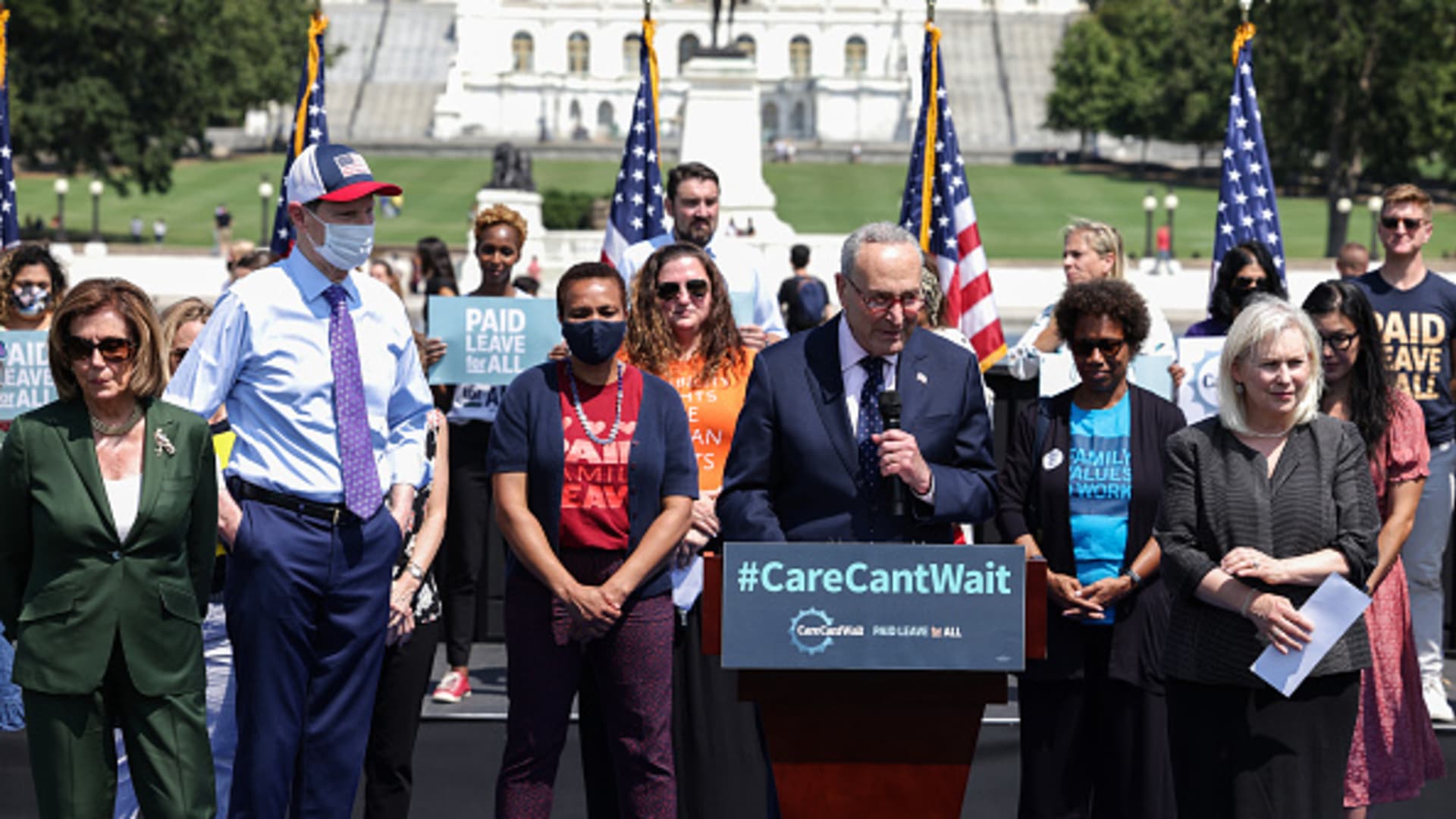
- The upcoming budget reconciliation process provides a window for Democrats to address key issues on their agenda.
- Experts say that a federal paid family leave program is high up on that list.
- Here's how that plan could shape up, and what it could mean for American workers.
Earlier this month, Paid Leave for All wrapped up a two-week nationwide campaign tour that included 10 states and 14 stops.
The goal was to raise awareness for paid family and medical leave for all working Americans.
Now, these advocates see a rare window to get proposed changes through in upcoming budget reconciliation.
Feeling out of the loop? We'll catch you up on the Chicago news you need to know. Sign up for the weekly Chicago Catch-Up newsletter here.
"We think the next four weeks are going to be a sprint, and we think this is the year that it has to happen," said Dawn Huckelbridge, director of Paid Leave for All.
More from Personal Finance:
These tax credits could boost refunds for low-income families this year
Democrats' $3.5 trillion budget plan includes major help for families with kids
National eviction ban struck down, but renters still have options
The group's campaign was started in late 2019, just before the Covid-19 pandemic hit. But the broader fight for paid family leave dates back to the passage of the Family and Medical Leave Act in 1993.
Money Report
The Covid-19 pandemic helped raise the conversation on federal paid family leave. The Families First Coronavirus Response Act provided emergency paid leave to qualifying families, though that expired at the end of last year. Notably, that program provided a tax credit to employers.
That measure had broad bipartisan support. But other proposals, notably the FAMILY Act and President Joe Biden's platform, have not been as widely embraced.
"Republicans speak very glowingly about the idea of paid leave," said Kathleen Romig, senior policy analyst at the Center on Budget and Policy Priorities.
"Once you start talking about raising taxes to pay for the paid leave, then you lose the Republicans, for the most part," Romig said.
To be sure, the lead Democratic proposals that are on the table would come with price tags. The Congressional Budget Office has estimated that the FAMILY Act would cost $500 billion over 10 years, Romig noted. Biden's proposal would cost about $225 billion, according to the administration's estimate, which has yet to be scored by the CBO.
Much of the reason for the wide discrepancy in costs is how fast those plans would phase in full coverage. The FAMILY Act would provide eligibility for 12 weeks of leave for any reason starting the year it was implemented. Biden's plan, however, would gradually ramp up eligibility to 12 weeks of leave over 10 years.
Notably, nine states and Washington, D.C., have enacted paid family leave programs.

However, 4 in 5 workers currently do not have access to paid family leave, according to Huckelbridge.
The temporary federal program put in place last year helped people to save their jobs and keep their families afloat. Putting a more permanent plan in place would help address long-standing racial and gender equity issues, she said.
"It will have these ripple effects that I think really could transform the country," Huckelbridge said. "It's something that could be a meaningful help for every working family."
Going into the budget reconciliation, paid family leave is one of Democrats' top priorities, Romig said.
Because that process offers the opportunity to push changes through with a simple majority, it is an "unusual moment" in Washington for this and other long-standing issues, she said.
"People have been imagining this forever, since the [Family and Medical Leave Act] passed," Romig said.
"This is just a really unique window of time, where things that have been politically impossible now seem possible," she said. "We'll see what happens."






